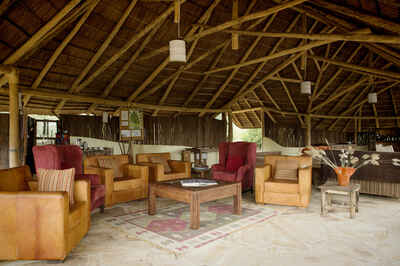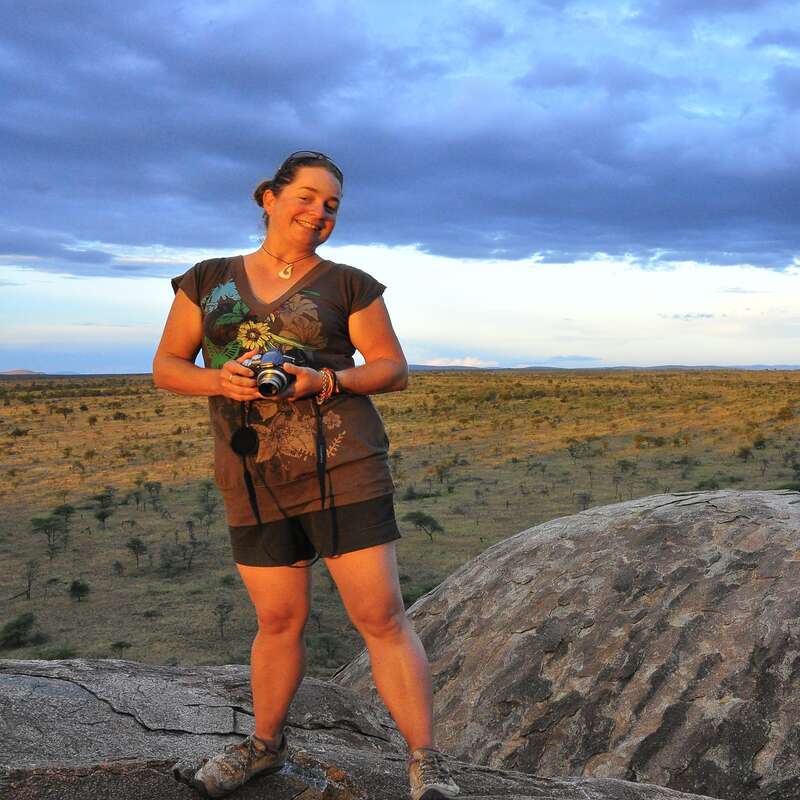About Little Oliver's Camp
Since it opened in 2013, Expert Africa has visited Little Oliver’s Camp, in southern Tarangire, on many occasions.
We've always found it to be a high-quality, very well run camp. Little Oliver's is a smaller sister camp to the popular Oliver's Camp, located just around the corner from Little Oliver's and built in an almost identical, but slightly larger scale.
Little Oliver's is an excellent small tented camp in Tarangire - like Oliver's main camp, it is very well run, with high quality guiding, food and service, but with a little more peace and privacy.
Accommodation
5 tents
Children
Best for 6+
Open
June to March
Activities

4WD Safari

Birdwatching

Cultural excursion

Guided walking safari

Hot air ballooning

Night drive

Private activities
Traveller reviews of Little Oliver's Camp
18 real, un-edited reviews from Expert Africa's travellers.
Arrived 16 Feb 2022, 4 nights
"Oliver's Camp review"
Overall rating: Excellent
Arrived 4 Aug 2019, 2 nights
"Exclusive Little Oliver's "
Overall rating: Excellent
Arrived 22 Jul 2019, 3 nights
"Wonderful camp in a great location"
Overall rating: Excellent
Arrived 30 Jul 2018, 3 nights
"Great Camp in a Beautiful Park"
Overall rating: Excellent
Arrived 17 Aug 2017, 2 nights
"Little Oliver's Camp review"
Overall rating: Excellent
Arrived 28 Jun 2017, 3 nights
"Little Olivers"
Overall rating: Excellent
Arrived 4 Sep 2016, 3 nights
"Little Oliver's Camp review"
Overall rating: Excellent
Arrived 14 Aug 2016, 3 nights
"Little Oliver's Camp review"
Overall rating: Excellent
Arrived 18 Jul 2016, 3 nights
"Great Camp and Great Location"
Overall rating: Excellent
Arrived 11 Jul 2016, 3 nights
"Felt very special"
Overall rating: Excellent
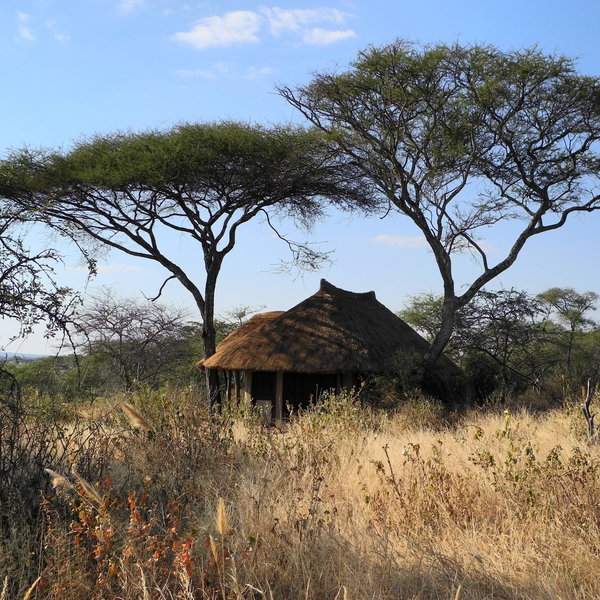
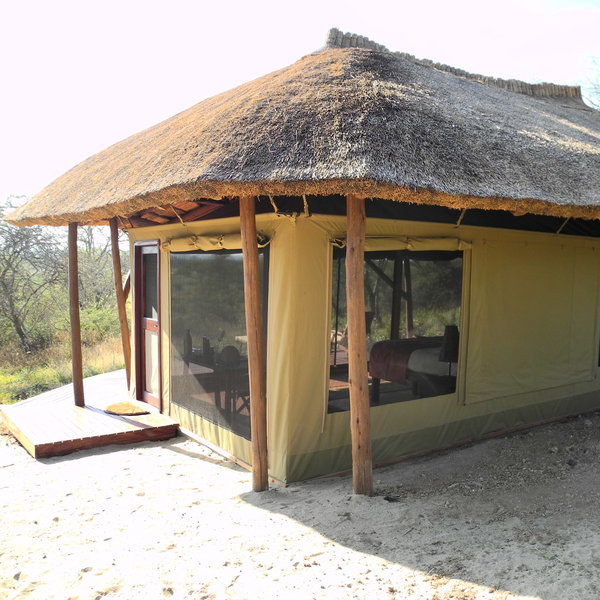
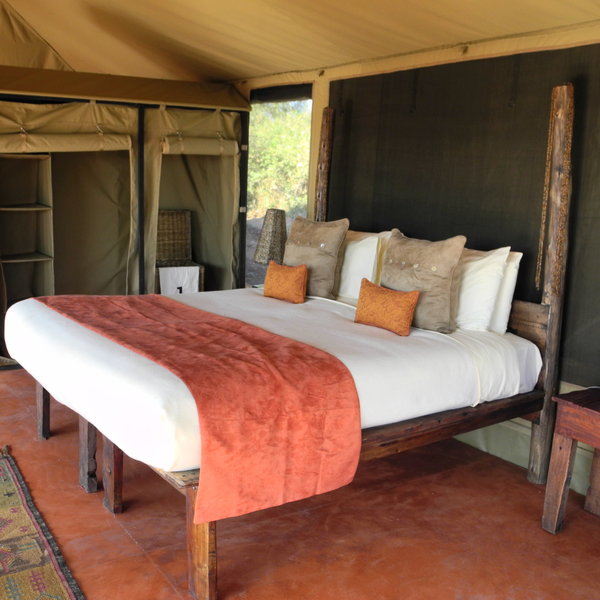
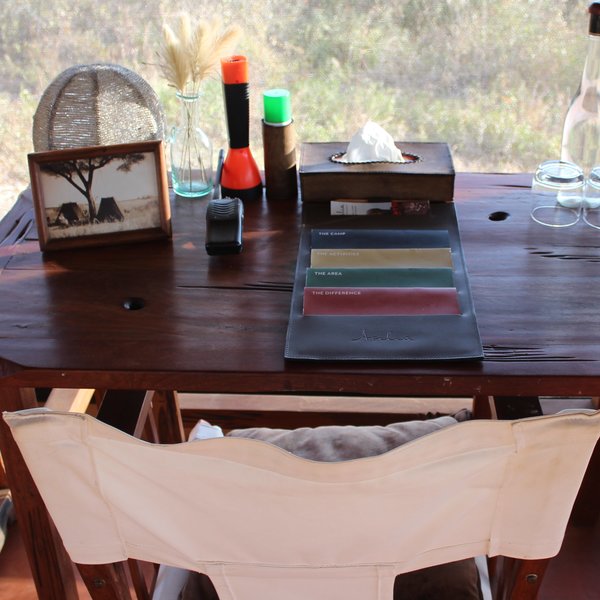
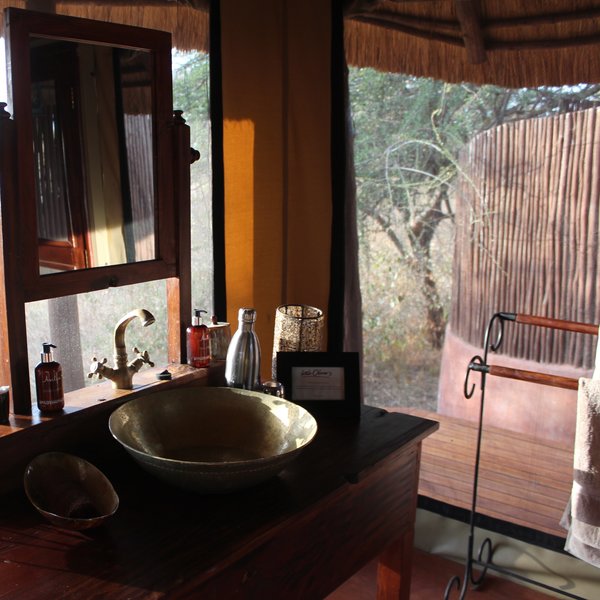
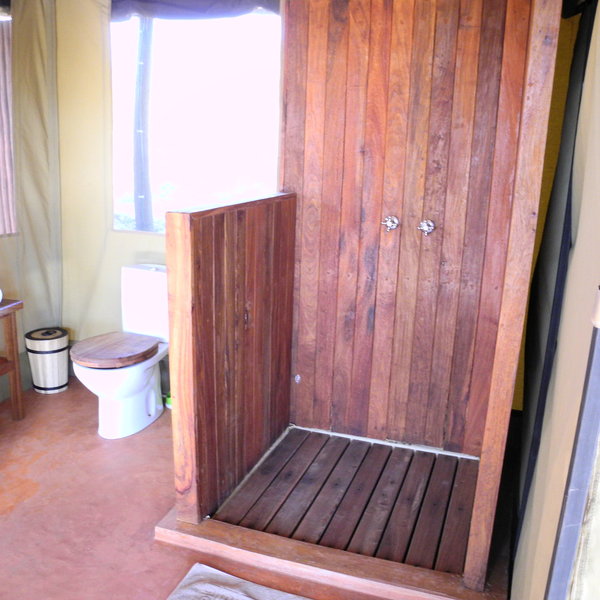
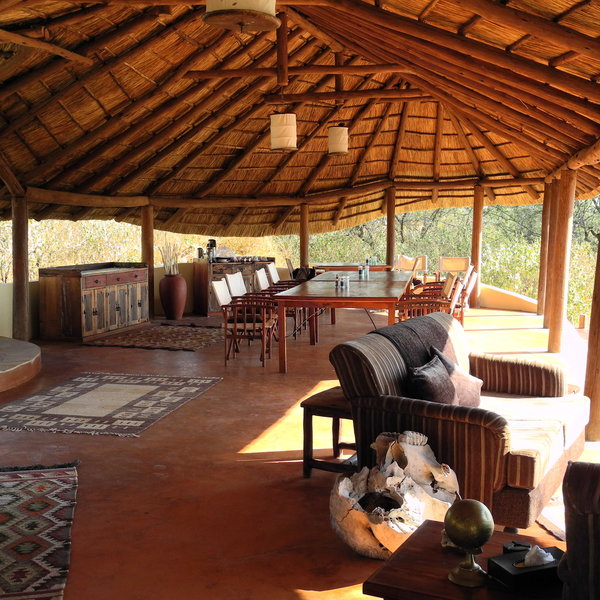
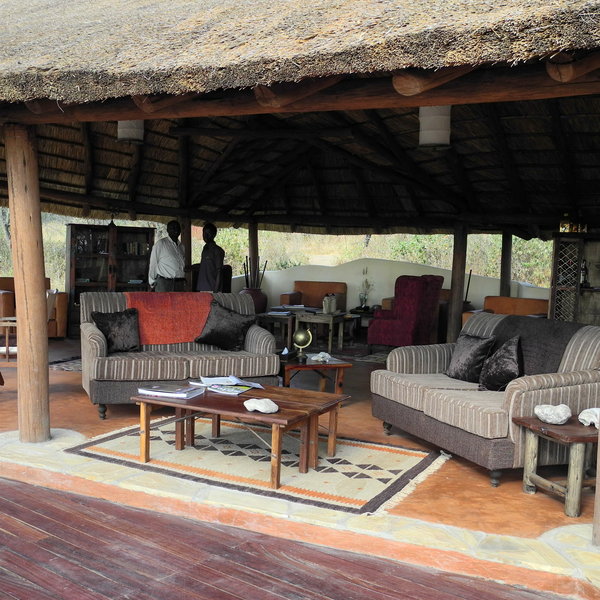
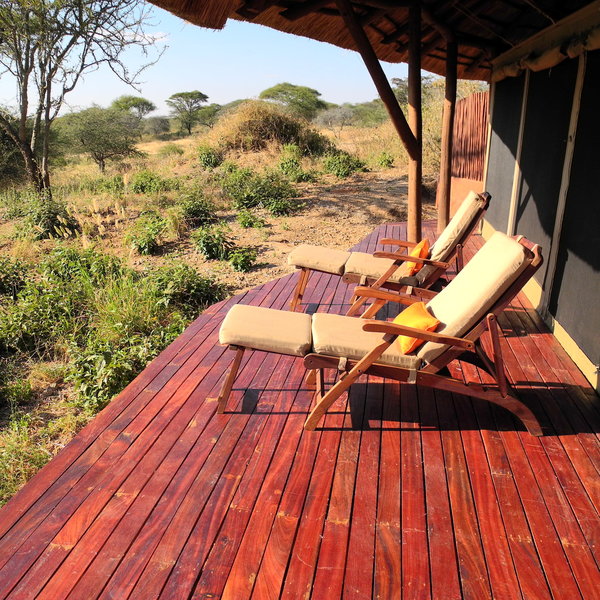
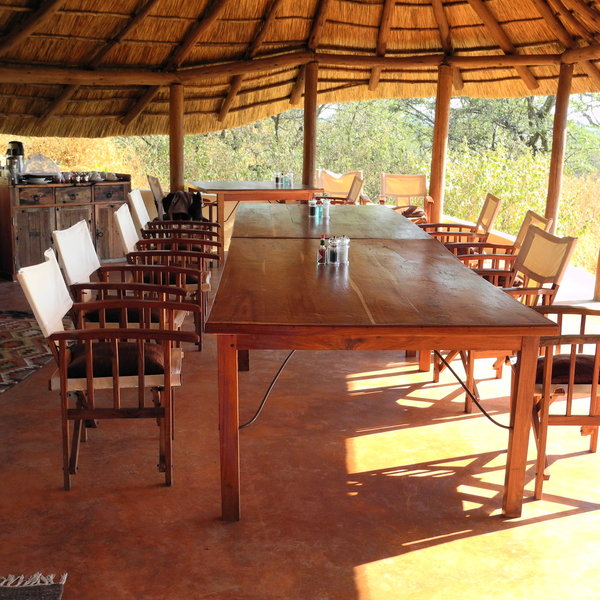
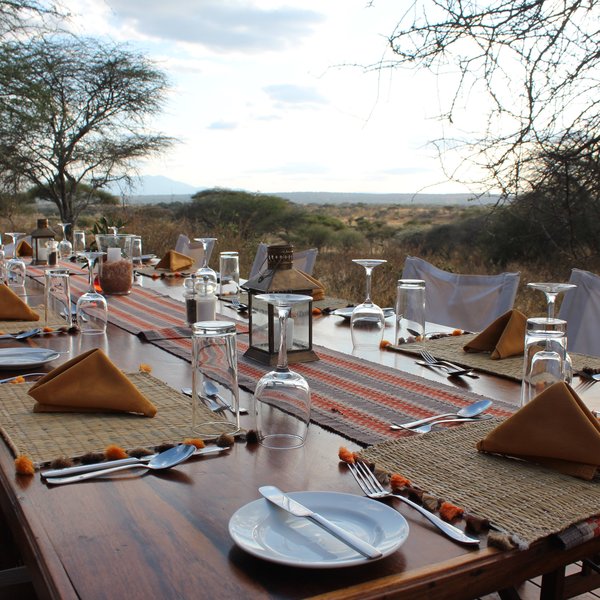
Expert Africa's gallery
When we travel we take lots of photos ourselves to give you a real and un-edited view of the safaris. See our 45 pictures and 1 videos of Little Oliver's to get the candid view.
View galleryLittle Oliver's Camp: Our full report
Since it opened in 2013, Expert Africa has visited Little Oliver’s Camp, in southern Tarangire, on many occasions.
We've always found it to be a high-quality, very well run camp. Little Oliver's is a smaller sister camp to the popular Oliver's Camp, located just around the corner from Little Oliver's and built in an almost identical, but slightly larger scale.
Little Oliver's consists of just five luxury tents which are almost exact replicas of the tents at Oliver's Camp. They are well spaced to allow for privacy, and one is further away than the rest, which is used for honeymooners. The rooms are raised up on wooden platforms, which extend at the front to form a deck with two sunloungers looking out into the surrounds. The camp is elevated on a small hill so there are good views here, and game can be spotted without even leaving camp.
The rooms are simple but high quality and practically designed, furnished with chunky wooden beds made from the timber of former dhows, Maasai bead lampshades, leather-bound books, and tree-trunk bedside tables. Each tent also has mosquito spray, a radio to contact the office, a torch and a digital safe, and there are sockets in the cupboard for charging batteries.
Separating the bedroom from the bathroom is a canvas wardrobe, which doesn't completely cross the room. While it shields the view of the bathroom, it is not completely private, so friends travelling together might wish for something more substantial. The bathroom consists of a sink, toilet and indoor shower, while through a door is a plumbed outdoor shower surrounded by a wooden fence for privacy.
The main area at Little Oliver's is an open sided space, shaded by thatch and furnished with plenty of comfortable leather armchairs and chunky wooden coffee tables covered with books. The look is stylish and welcoming, and an inviting place to relax with a cup of tea or a G&T. The adjoining dining area has a communal table, adding to the sociable and friendly atmosphere. There is a very pleasant decking area which would alos be well suited to sundowners.
Little Oliver's would work well for large groups of friends and families who are looking for a small camp to rent out exclusively, or those who want the quality and location of the main Oliver's Camp, but with a slightly smaller set-up.
Activities at Little Oliver's include walking, usually on the plains or in the sand river. Resident guides can take you for game drives, including night drives (which are an extra cost of US$115 per person in 2018). At the time of writing, walking safaris are priced at $75 per person. Currently fly-camping is no longer possible from Little Oliver's.
Activities
4WD Safari
Birdwatching
Cultural excursion
Guided walking safari
Hot air ballooning
Night drive
Private activities
Families & children
- Attitude towards children
- Oliver's Camp will happily accept children from the age of 6.
- Property’s age restrictions
- Children under 12 are not permitted to walk in Tarangire National Park.
- Special activities & services
- None
- Equipment
- Even though the tents are quite far apart, children’s tents can be connected to their parents’ tent by radio.
- Generally recommended for children
- This camp is best suited for older children aged 12 and above.
- Notes
- Oliver's Camp is a small friendly camp that is welcoming to older children, though parents should be aware that this is a bushcamp and that it is not fenced. Parents should keep a close eye on their children, who are their responsibility at all times.
Food & drink
- Usual board basis
- Full Board & Activities
- Food quality
- On our last visit to Little Oliver's in October 2018, we did not have time to eat, but on previous visits we have found the food to be of a very high standard, as with other Asilia properties. Breakfast is served with both hot and cold options with a buffet of cereals, fruit, and yoghurts on offer as well as cooked eggs, bacon, sausage and vegetables, which can be ordered at your table.
Most of the time, guests – including us – take a box lunch on a full day game drive. However, if eating lunch in camp, this is usually served in two courses – oftern family style at the table. Usually there is a selection of salads and cooked meats, followed by a light, often fruit-based dessert. The camp can also arrange for bush lunches on request.
Dinner is served as a three-course meal at a communal table, which is set outside under the stars most of the time. In the past we have enjoyed a butternut squash soup as a starter, followed by a peppercorn-encrusted beef fillet for a main course, and a rich chocolate mousse for dessert.
It is worth to mention that the menu at Little Oliver's Camp is identical to Oliver's Camp. - Dining style
- Group Meals
- Dining locations
- Indoor and Outdoor Dining
- Further dining info, including room service
- No
- Drinks included
- Most drinks are included. Fine wines, champagne and imported spirits will cost extra.
Our travellers’ wildlife sightings from Little Oliver's
Since mid-2018, many of our travellers who stayed at Little Oliver's Camp have kindly recorded their wildlife sightings and shared them with us. The results are below. Click an animal to see more, and here to see more on our methodology.

100% success

100% success

100% success

100% success

100% success

75% success

75% success

75% success

75% success

50% success

50% success

33% success

0% success

0% success

0% success

0% success
Getting there
- Location
- Tarangire National Park, Tanzania
- Ideal length of stay
- 2-3 nights
- Directions
- Little Oliver's Camp is a 45 minutes' drive from Kuro airstrip. If driving in from Arusha, allow 4-6 hours in total depending on what wildlife you spot whilst travelling through the park. The parks main gate is around 2 hours drive from Arusha.
- Accessible by
- Fly-and-Transfer
Communications
- Power supply notes
- There is a back up generator if needed.
- Communications
- Little Oliver's Camp has WiFi in the bedrooms. There is usually cellphone reception in the camp, though Oliver's requests that guests do not use their phones in the communal areas.
- TV & radio
- There is no TV or radio in camp.
- Water supply
- Borehole
Health & safety
- Malarial protection recommended
- Yes
- Medical care
- The managers and guides at Little Oliver's Camp are all first aid trained, and the camp has links to the flying doctor service.
- Dangerous animals
- High Risk
- Security measures
- Askaris (guards) escort you around at night, as animals do wander through the camp.
- Fire safety
- There is a firebreak around the camp and all tents have fire extinguishers.
Useful info
- Disabled access
- On Request
- Laundry facilities
- Laundry at Oliver's Camp is included – but it is hand washed so no underwear is accepted. Soap is provided in the bathrooms for this.
- Money
- There are safes in all the tents for storing valuables.
- Accepted payment on location
- Little Oliver's Camp will accept payments in cash, as well as Visa and MasterCard. They cannot accept Amex or travellers' cheques.
Plan and book your trip with Expert Africa
All of our trips are tailor-made, so we'll always adapt them to suit you. Talk to an Expert and let us plan and arrange your perfect trip.

Talk to an Expert
Call or email us now! We’ll match you with the Specialist in our team who is best suited to help you. Then together we can start planning your trip.

Set up your itinerary
Based on our experience and your ideas, your specialist will create a detailed, costed itinerary. We’ll refine it together, until we have a trip that you’re perfectly happy with.

Prepare for your trip
The same Specialist will make the seamless arrangements for your trip, send you detailed travel documents, and be available to answer any questions before you depart.

Travel with peace of mind
After you set off, you’ll be cared for by our partners in Africa, most of whom have worked with Expert Africa for decades. And if you ever need us urgently, we’re available 24/7.

When you return
We love to learn about your trip, and so will always be grateful if you’ve the time to give feedback to your Specialist when you return.
Little Oliver's Camp's location
Look closer at the environment and surroundings of Little Oliver's.
Excursions from Little Oliver's
Optional extra day-trips and excursions possible whilst you're staying at Little Oliver's. Talk to us: these are usually best arranged before you go.
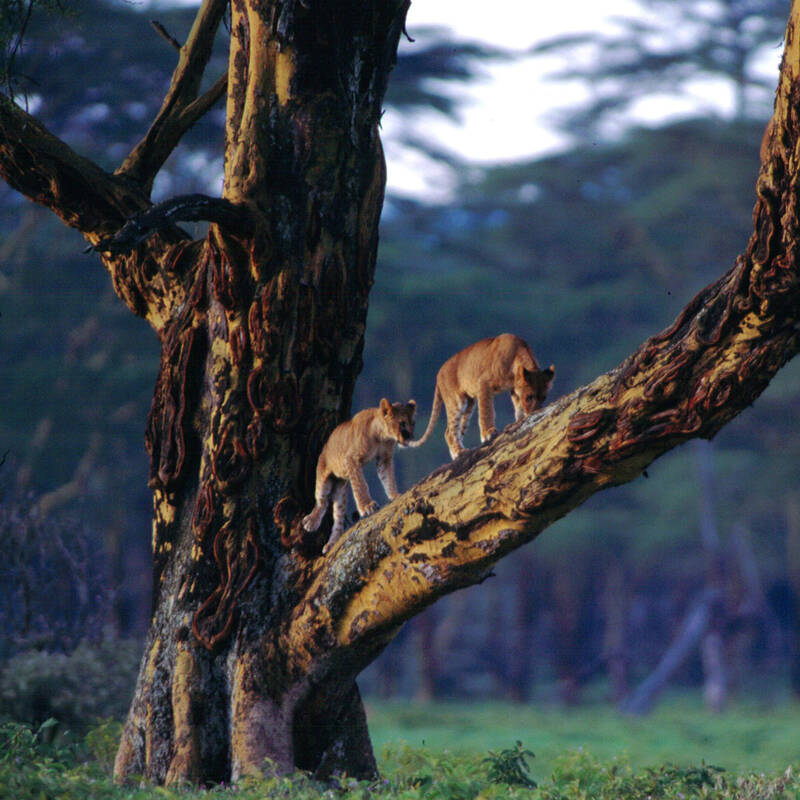
Lake Manyara Safari
Half-day or full-day
Set against the spectacular backdrop of the Rift Valley escarpment, Lake Manyara National Park makes a great safari destination. Here, along with elephant herds and plains game, you’ll find jungle-like forests that are home to blue monkeys, a soda lake tinged pink by flamingos and some of Tanzania’s best birding.
More about Lake Manyara Safari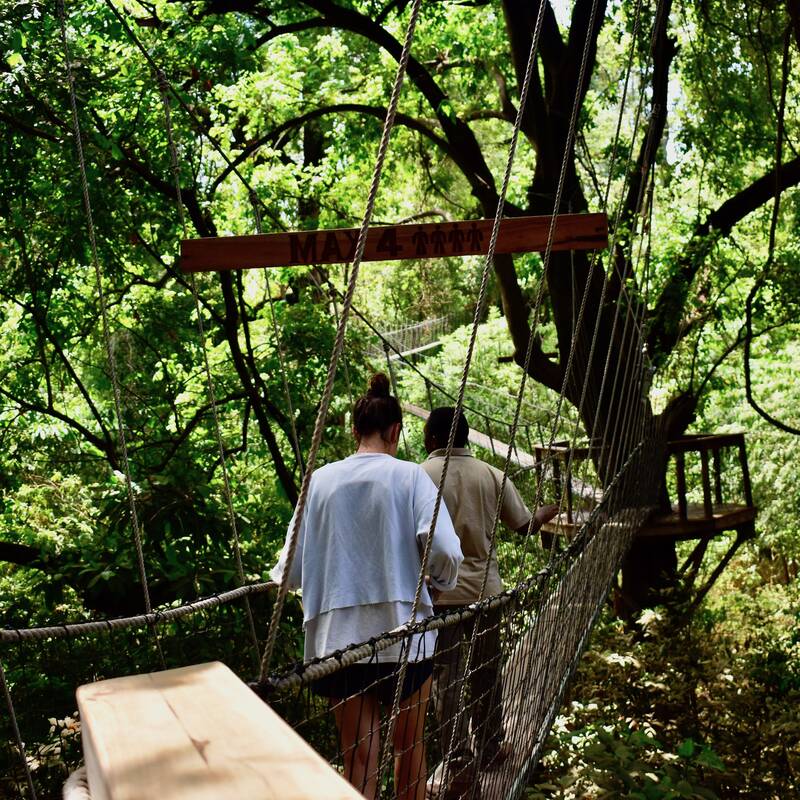
Lake Manyara Treetop Walkway
Usually one hour
Experience the forest of Lake Manyara National Park from a whole new perspective – high up in the trees. The first suspended walkway in Tanzania, it stretches underneath the canopy for 370m between the mahogany and fig trees, giving intrepid visitors a unique view of the surrounding flora and fauna.
More about Manyara Treetop WalkOther lodges in Tarangire National Park
Alternative places to stay in this same area.
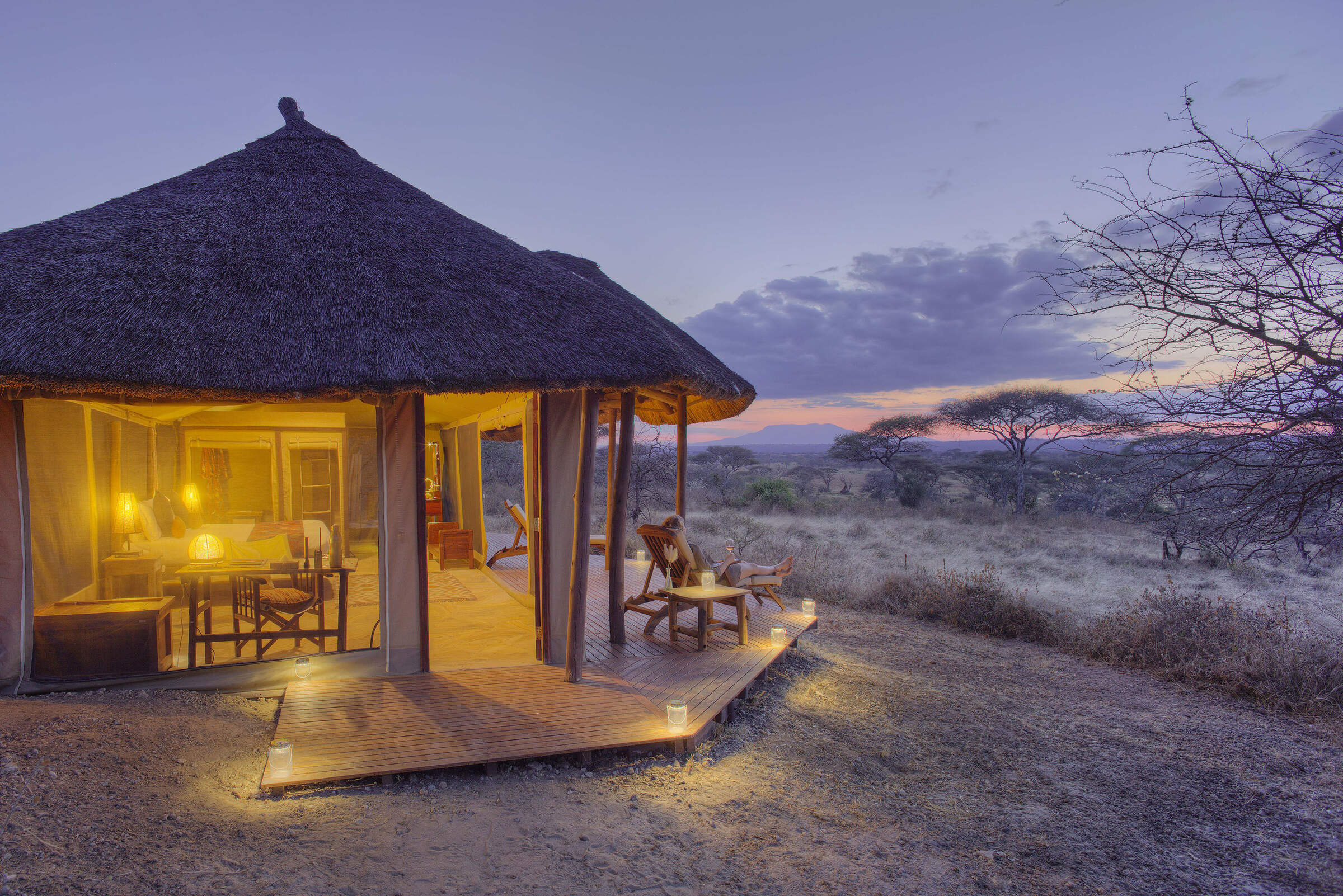
Oliver's Camp
Oliver's Camp is a small, intimate, luxury tented camp in a great location in northern Tanzania's Tarangire National Park.
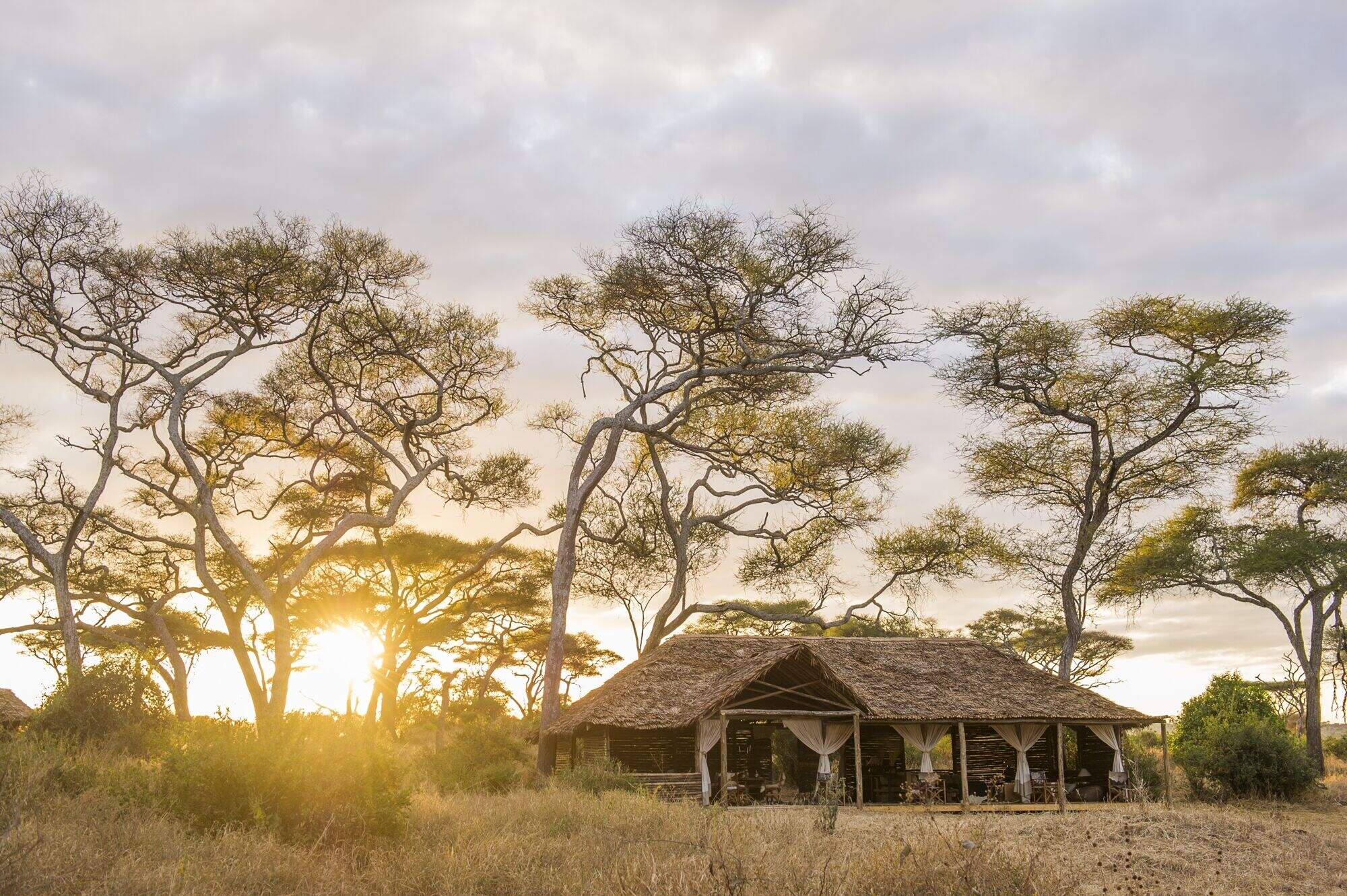
Kuro Tarangire
Kuro Tarangire is a stylish tented camp, located in a quiet and remote area deep in Tarangire National Park.
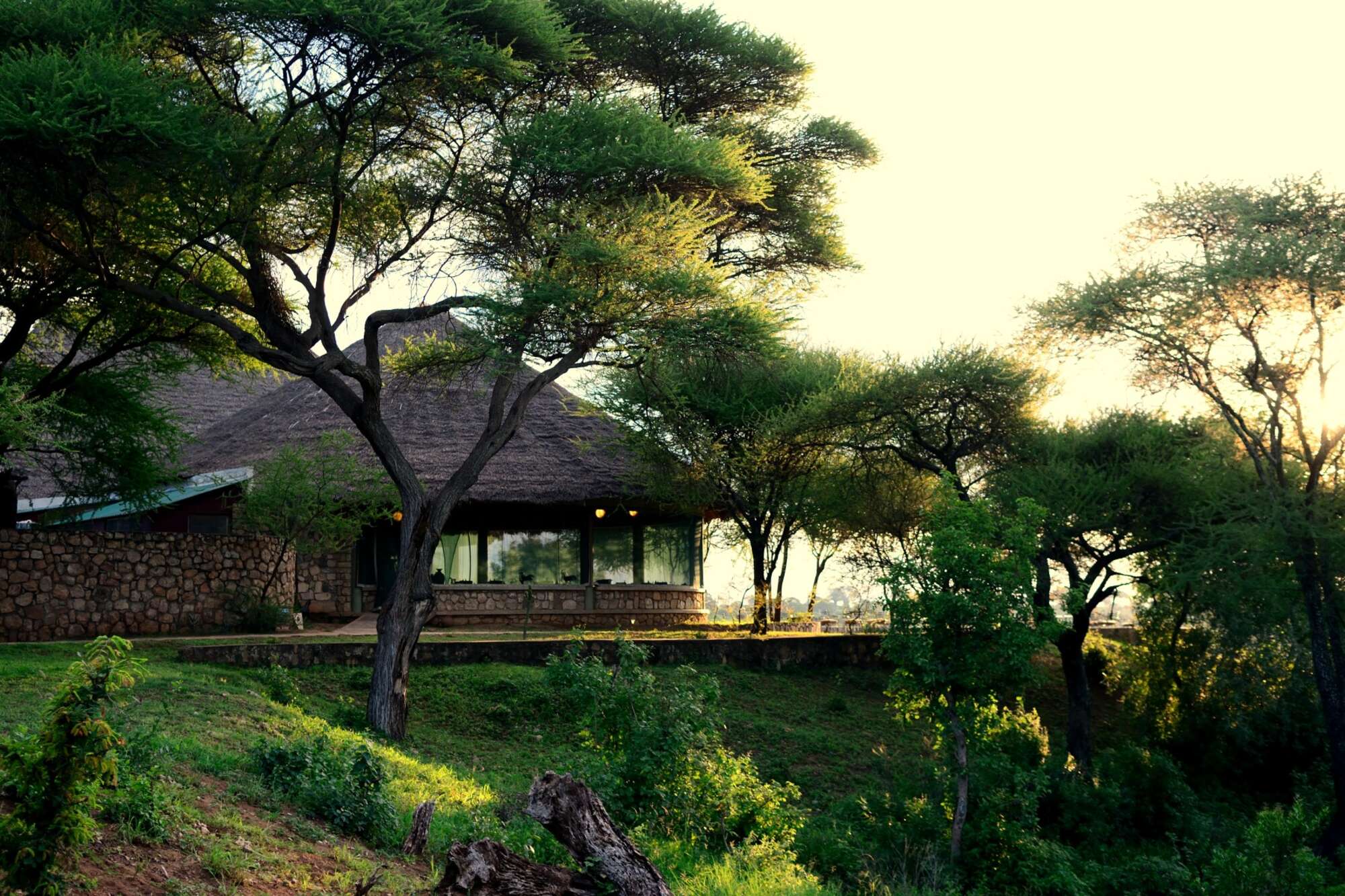
Tarangire Safari
Functional Tarangire Safari Lodge is one of Tarangire National Park's larger lodges, on a prime central site overlooking the river.
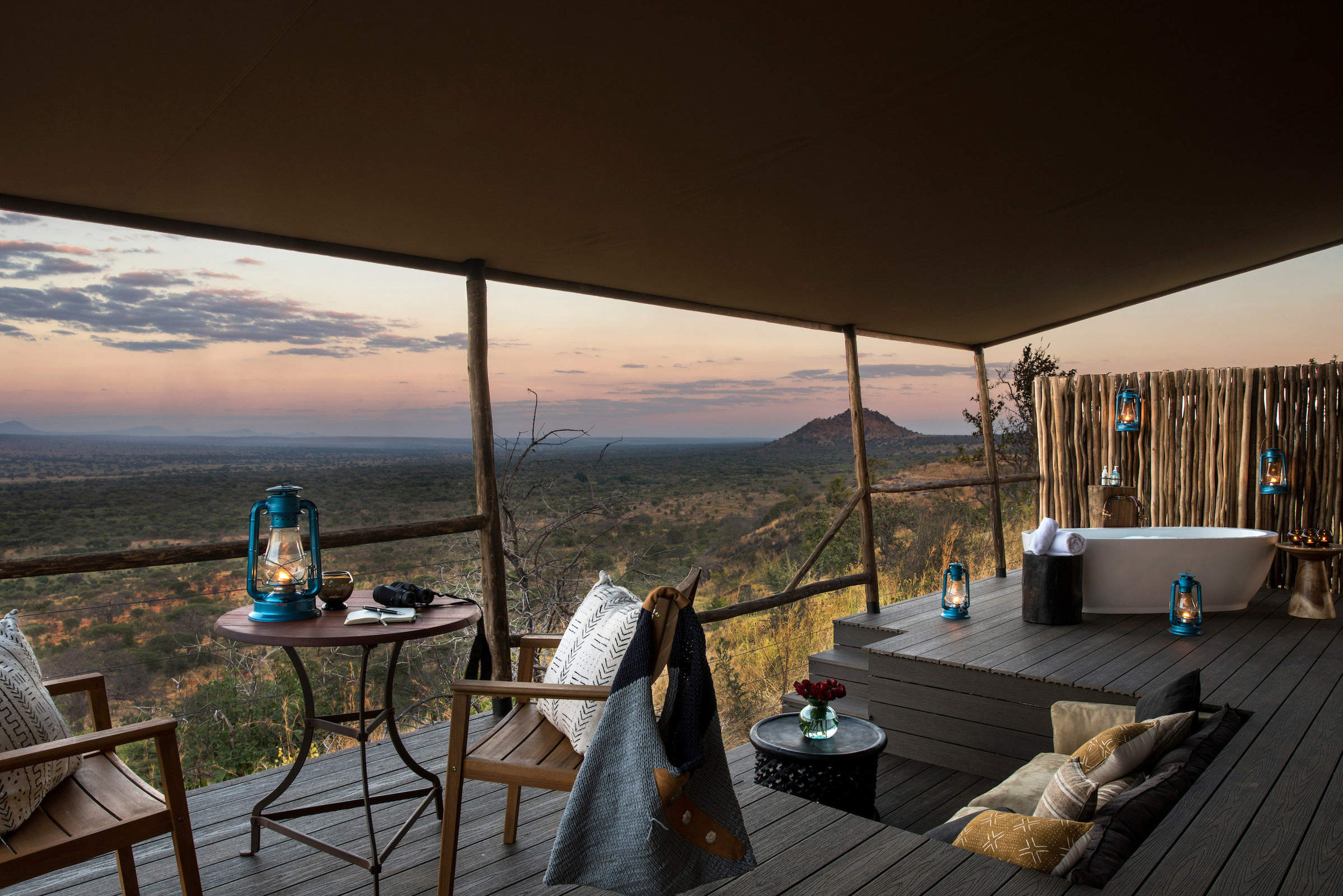
Lemala Mpingo Ridge
Lemala Mpingo Ridge is a stylish camp in Tarangire National Park, with a beautiful location and elevated views over the park.
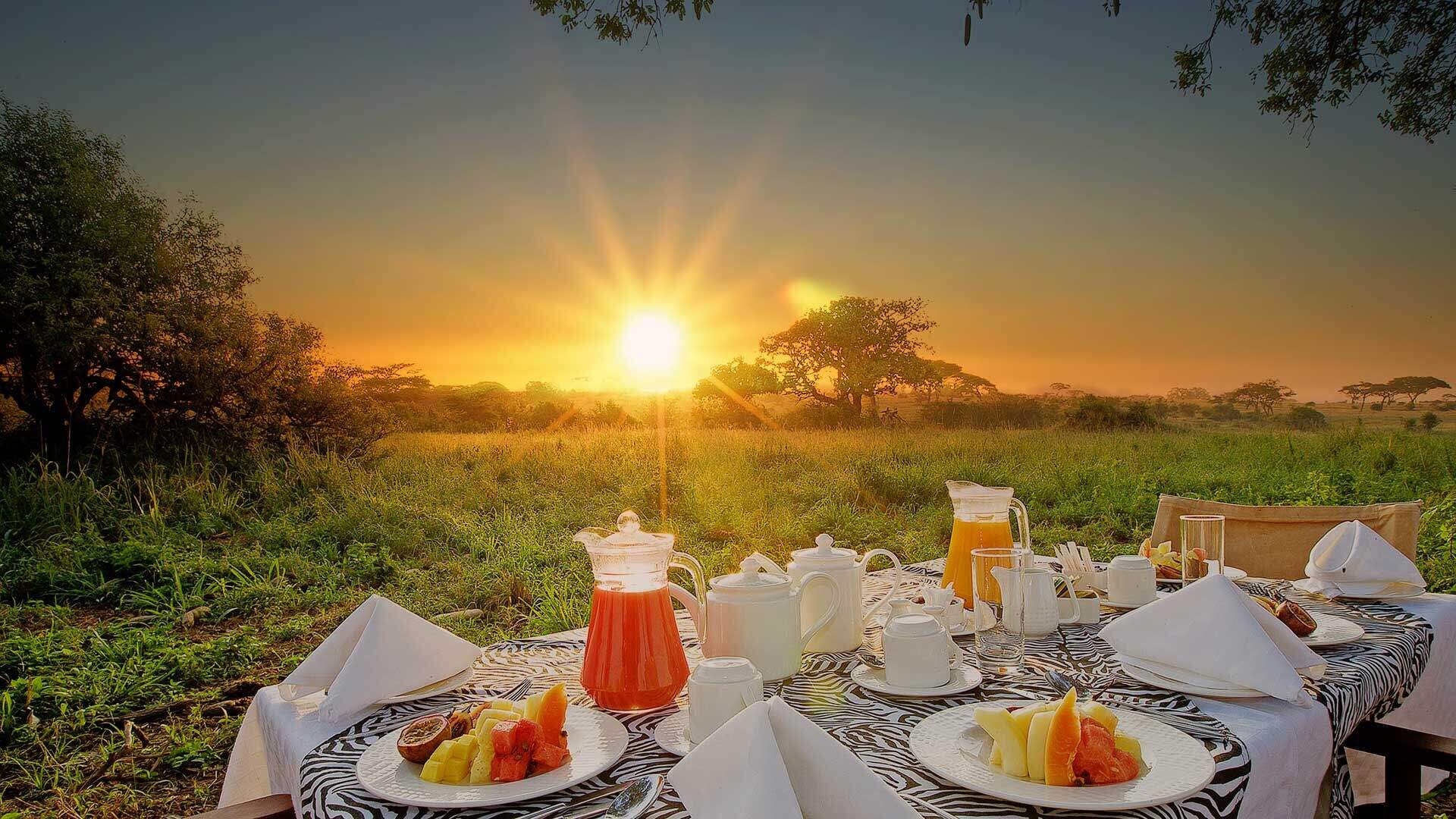
Tarangire Sopa Lodge
Tarangire Sopa Lodge is a large, comfortable, family-friendly hotel in Tarangire National Park, suitable for travellers on a budget.
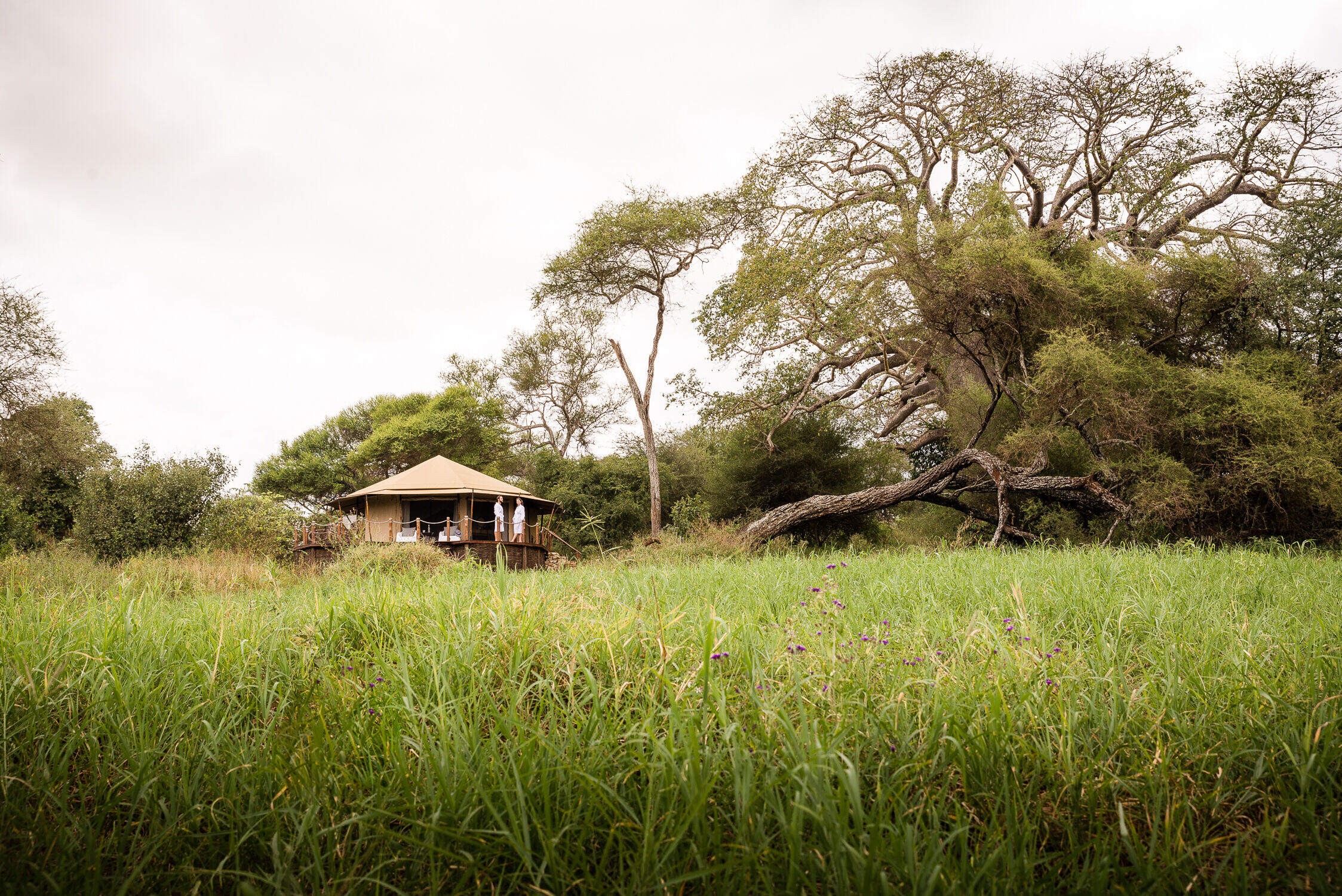
Swala Camp
Swala Camp is a stylish camp for exploring the southern Tarangire, either with a private driver-guide, or using the camp's vehicles and guides.
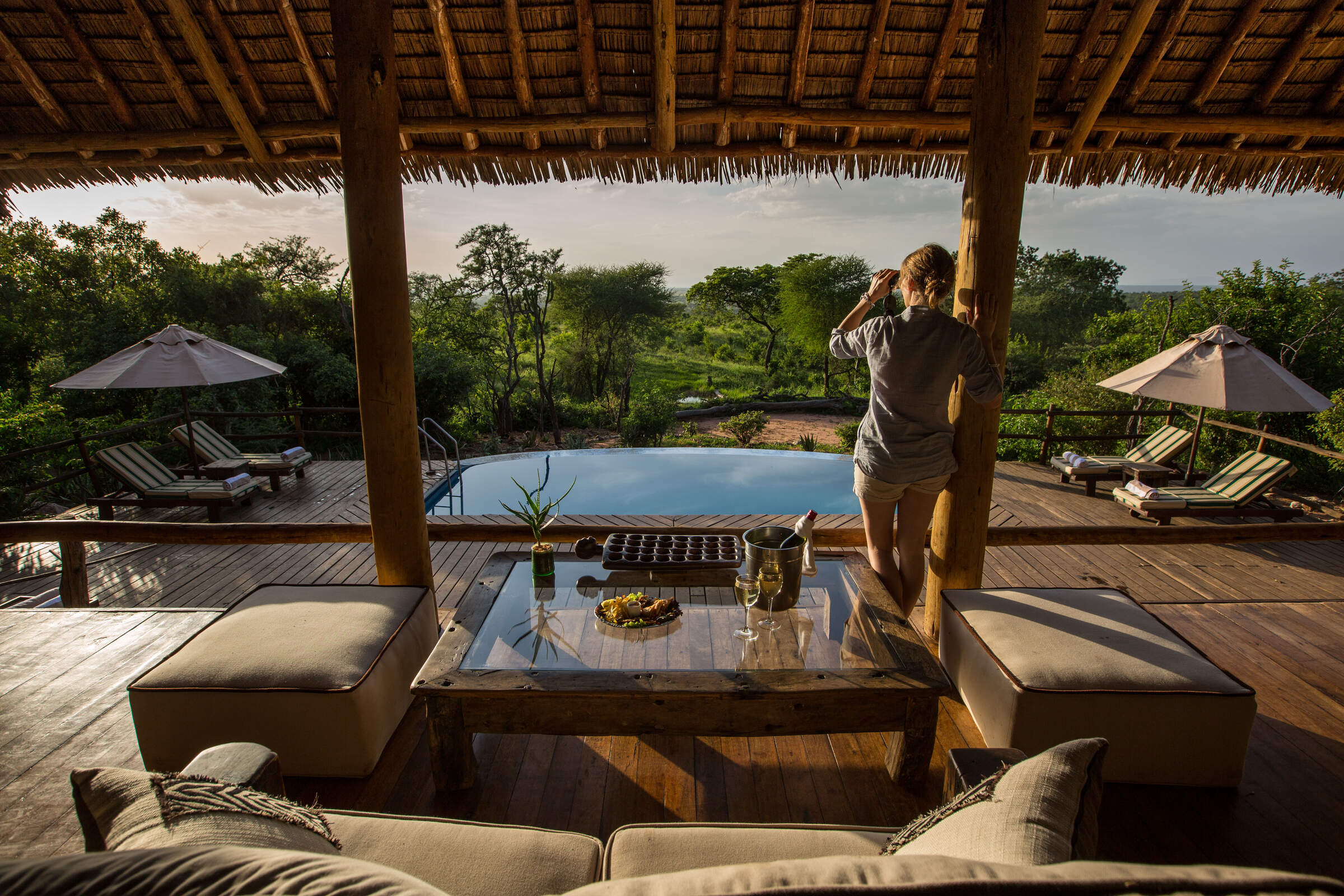
Tarangire Treetops
Tarangire Treetops is a lovely, high-quality lodge on the outskirts of Tarangire National Park, offering game drives, night drives and safari walks.
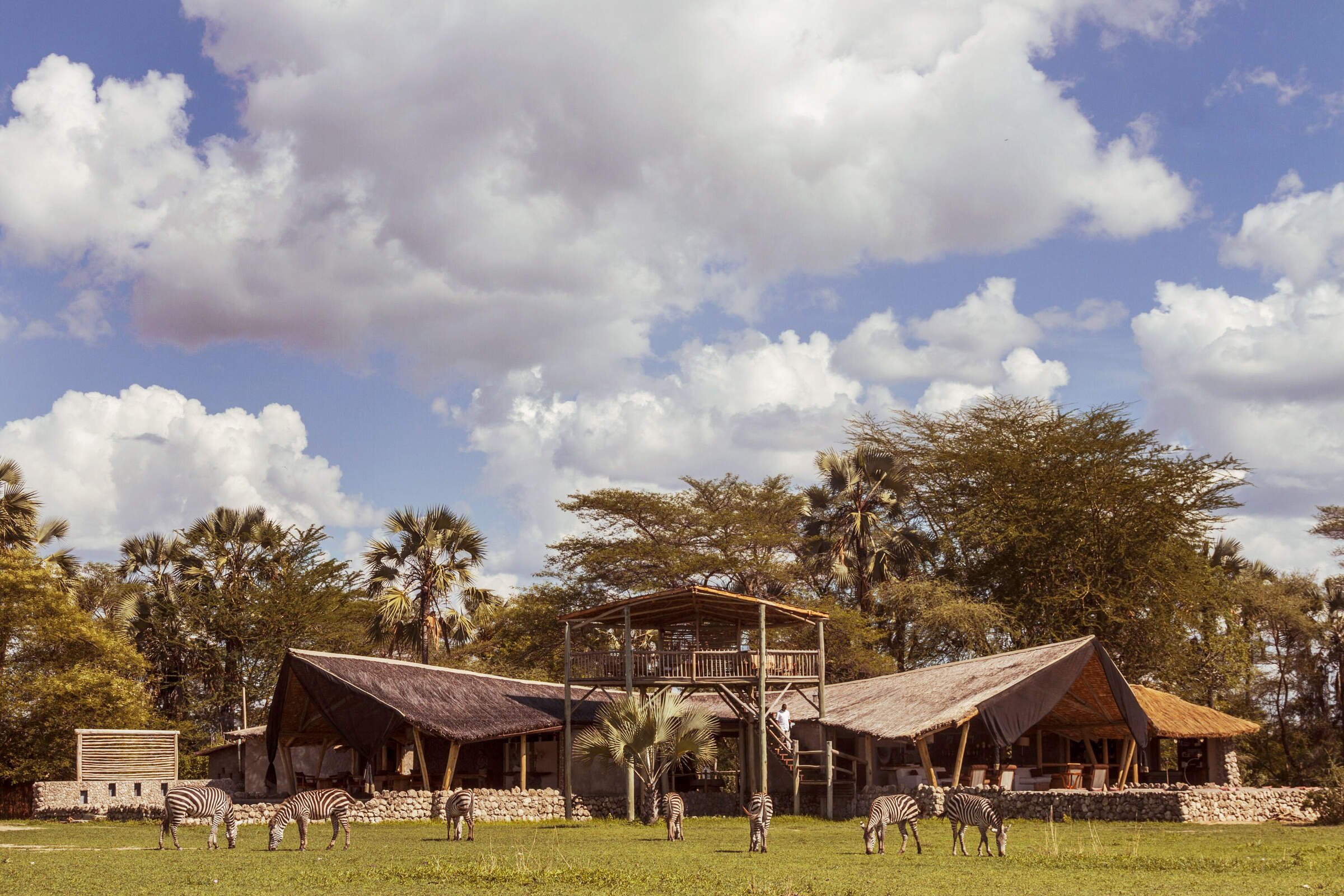
Chem Chem
Chem Chem is a luxury tented lodge on a private concession between Lake Manyara and Tarangire national parks.
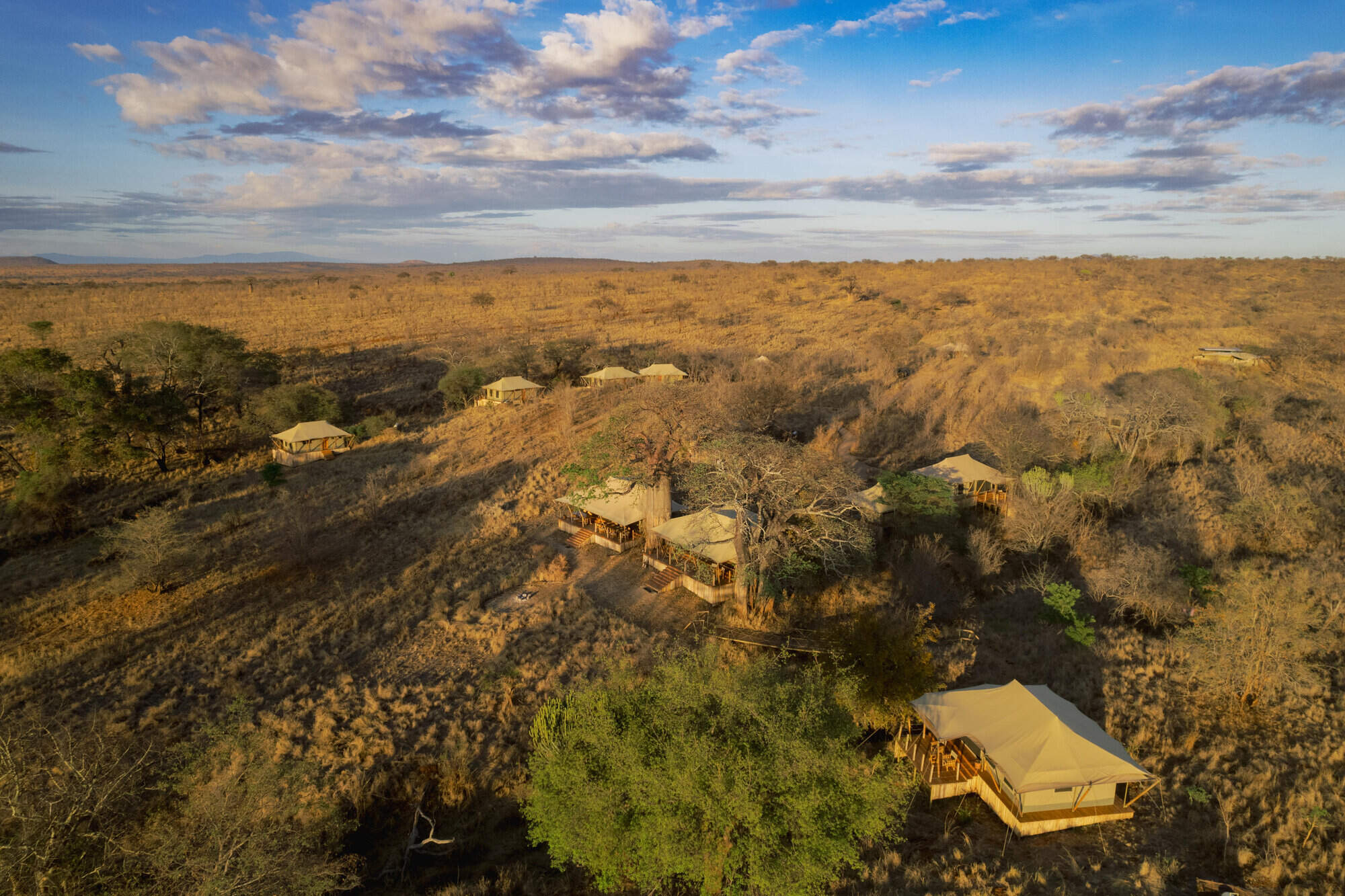
Olkeri Camp
Olkeri is a comfortable tented camp, located in the Randilen Wildlife Management area, bordering Tarangire National Park; ideal for those looking for pristine wilderness.
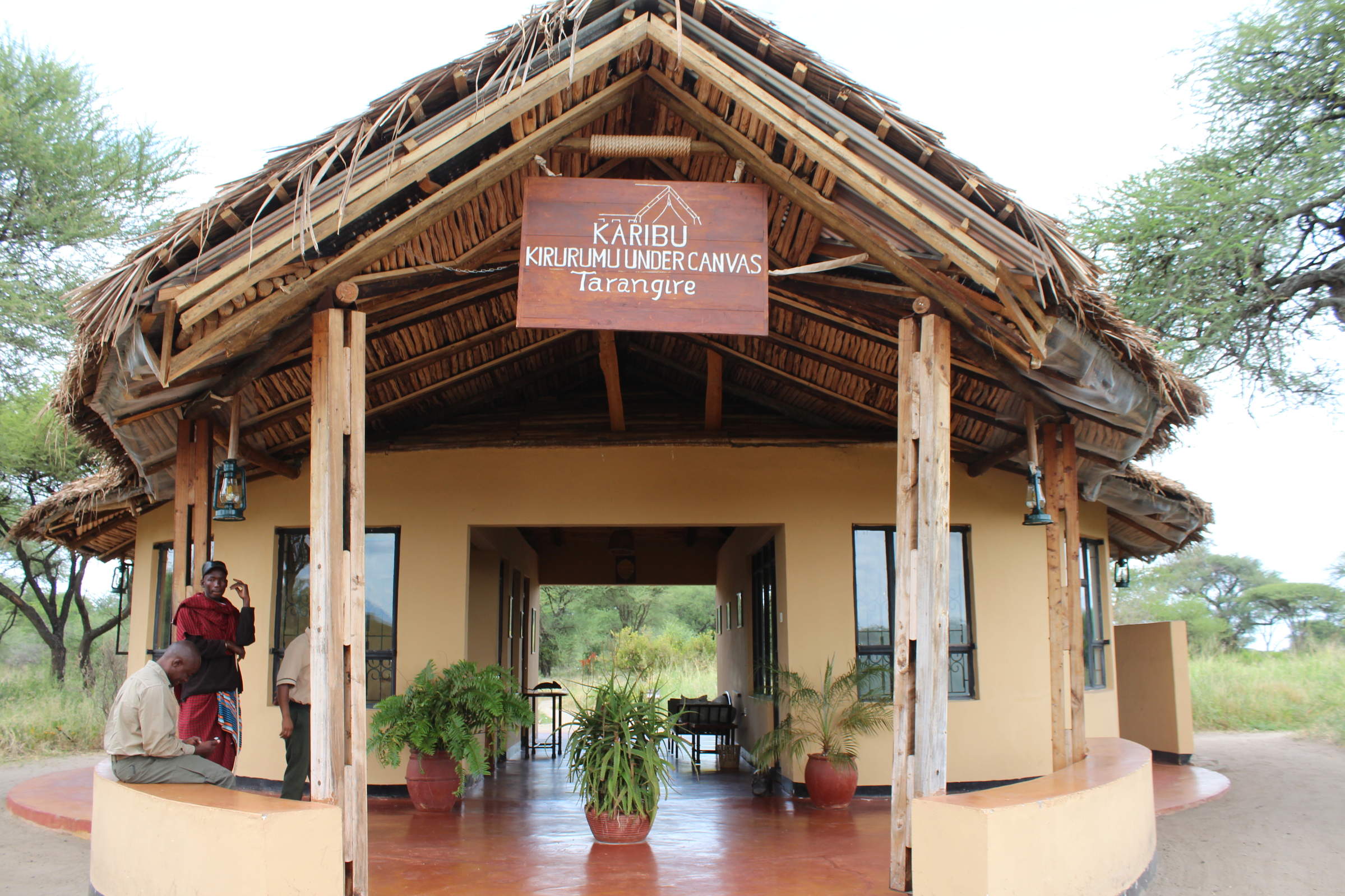
Kirurumu Tarangire
Kirurumu Tarangire Lodge is a simple, small, tented camp positioned just outside the northern boundary of Tarangire National Park.
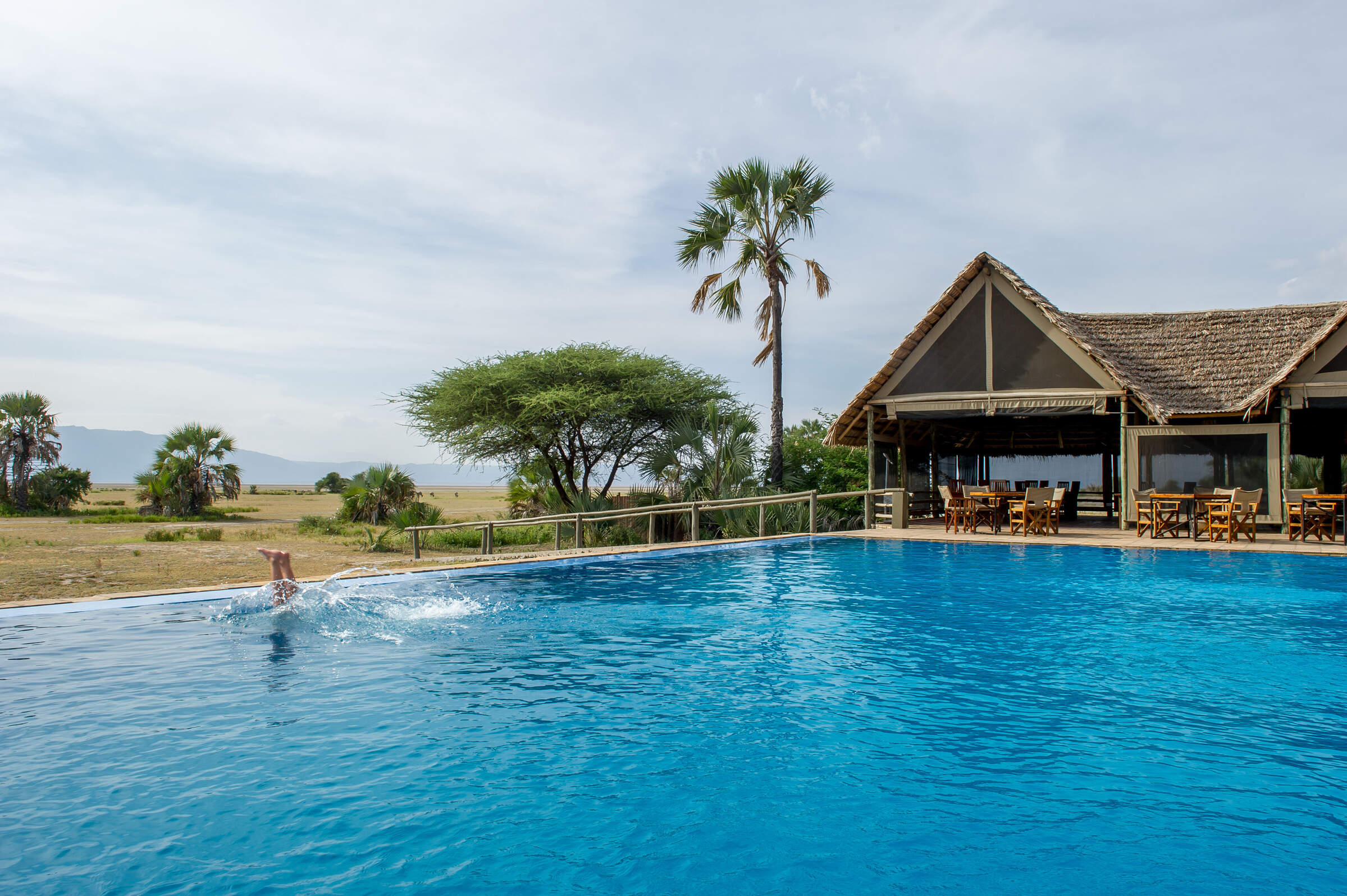
Maramboi Tented Camp
Maramboi Tented Camp is a family-friendly tented lodge located between Lake Manyara and Tarangire National Park.
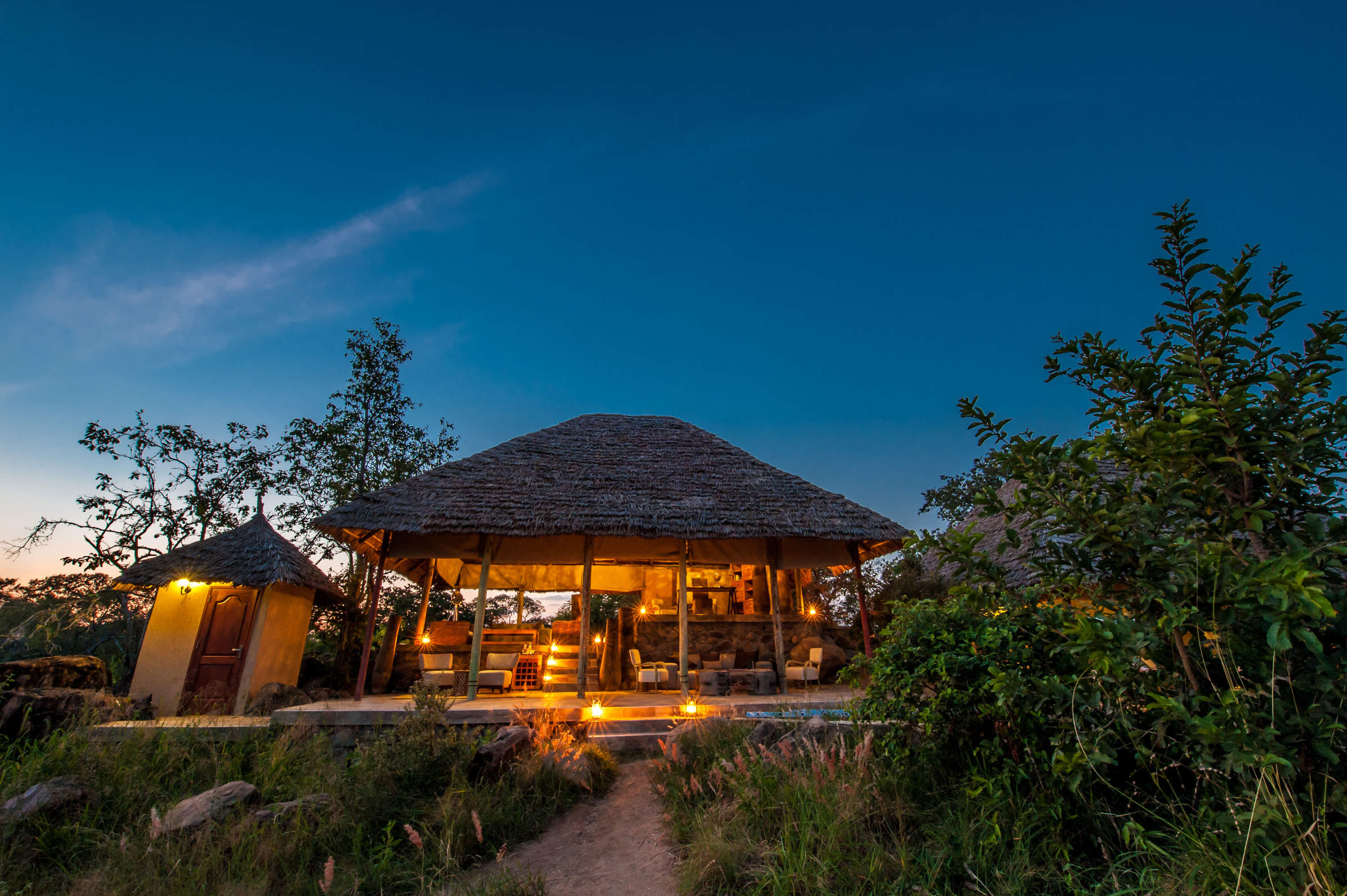
Nimali Tarangire
Nimali is a small camp built in contemporary style on the outskirts of Tarangire National Park in northern Tanzania.
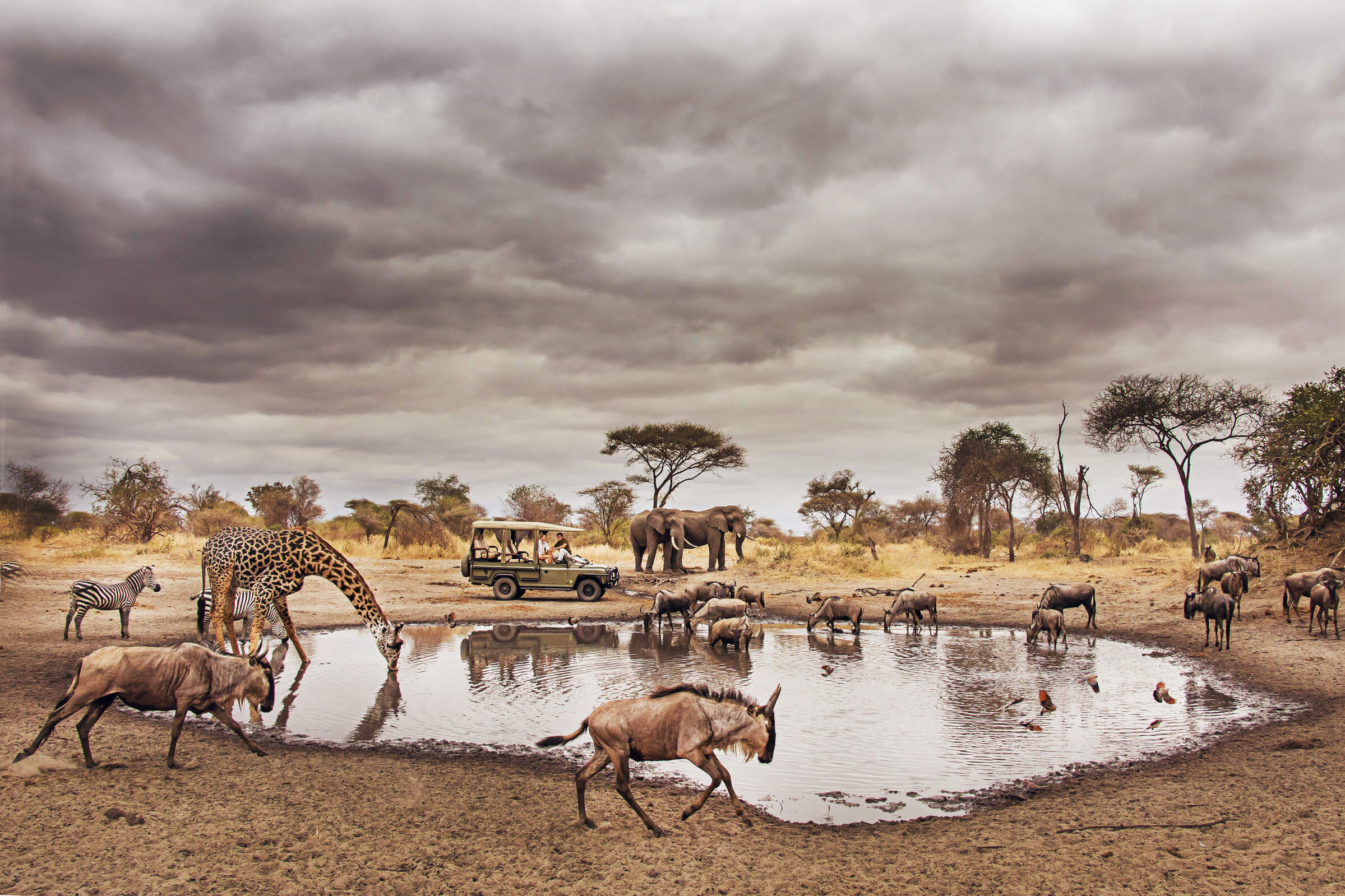
Forest Chem Chem
Located in the Chem Chem Concession and close to Tarangire National Park, Forest Chem Chem is a high-quality tented camp which is booked on an exclusive basis.
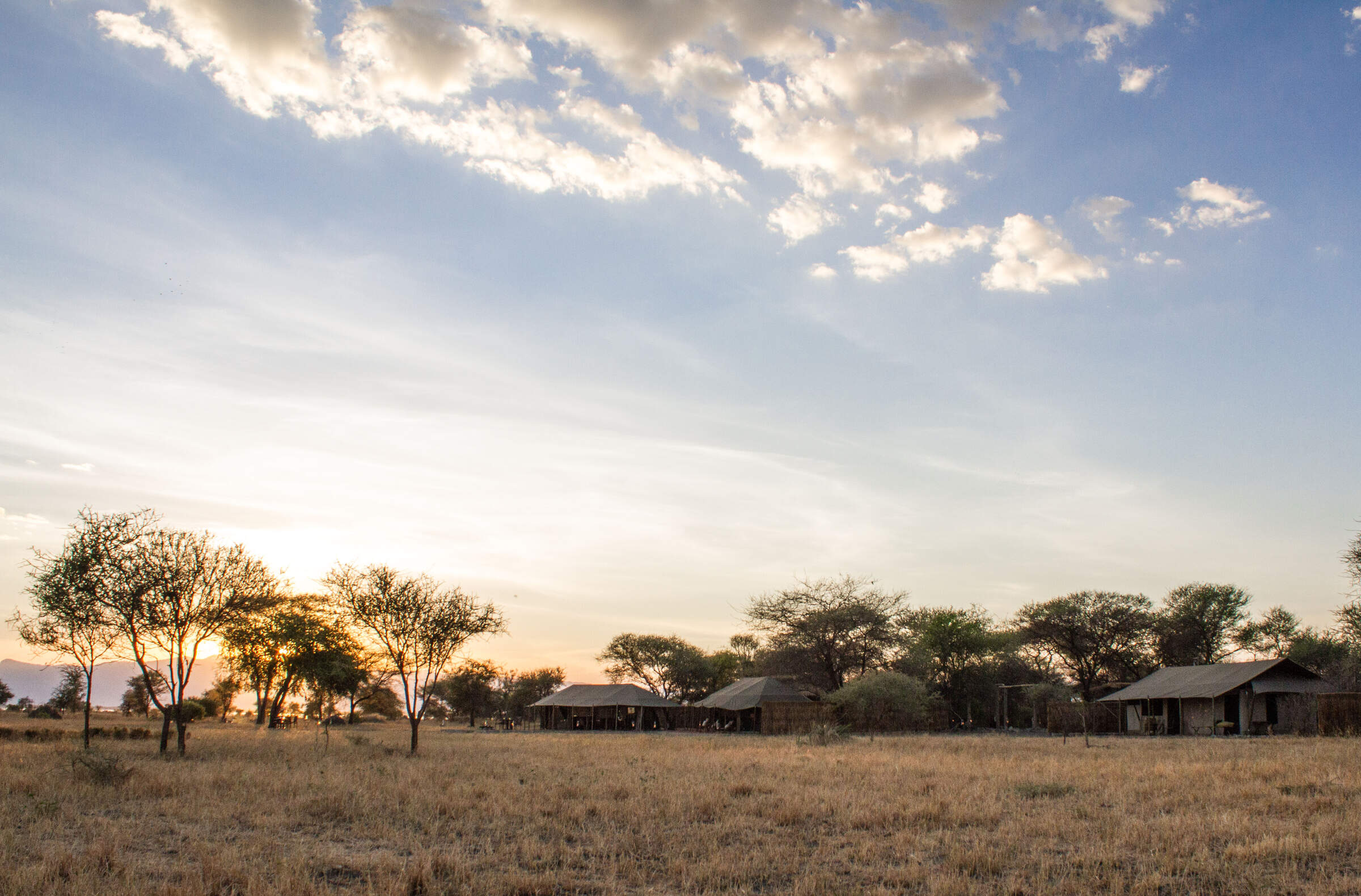
Little Chem Chem
Little Chem Chem is a stylish option near Tarangire National Park, offering real relaxation combined with a variety of safari activities.
When to go to Tarangire National Park
Our month by month guide: What it's like to visit Little Oliver's in Tarangire National Park
Jan
Feb
Mar
Apr
May
Jun
Jul
Aug
Sep
Oct
Nov
Dec
Tarangire National Park in January
January marks the start of the short dry season. The Tarangire River becomes a crucial water source, attracting diverse wildlife. Elephants, buffaloes, and zebras congregate around the river and swamps. The iconic baobab trees stand out against the landscape, providing food and shelter for animals. Birdwatching is excellent as resident birds display breeding plumage and migrant species are present.
The Silale and Gurusi swamps teem with hippos and crocodiles. While the southern areas of the park may still be wet, the northern regions offer great game viewing. The Matete Woodlands provide opportunities to spot leopards and rare fringe-eared oryx antelopes. January can offer great value for visitors, with quieter park conditions and variable weather.
- Variable weather, dry or rainy periods
- Good for birding, many migrant species present
- Elephant herds gather near Tarangire River
- Lush landscapes ideal for photography
- Quieter after early January rush
Our view
A good time to visit, with pros & cons
Weather in January
Tarangire National Park in February
February in Tarangire National Park is one of the hottest months, with temperatures reaching around 33°C/91°F. The short dry season continues, making it an excellent time for wildlife viewing. The Tarangire River and surrounding swamps become focal points for animal activity. Large herds of elephants, numbering over 3,000, are a major attraction.
The north offers impressive vegetation and birdlife, including large flocks of red-billed quelea birds and various raptors. Birdwatchers will enjoy the park's 550+ species, with northern hemisphere migrants joining resident birds. February is lovely for ballooning, offering unique aerial views of the park's diverse landscapes and wildlife during the cooler morning hours.
- Hot and dry weather prevails
- Large elephant herds visible near water sources
- Excellent time for game drives and safaris
- Baobab trees stand out in dry landscape
- Park less crowded, better wildlife viewing
Our view
A very good time to visit
Weather in February
Tarangire National Park in March
As March arrives in Tarangire, the long rains begin, transforming the landscape. This is an important time for the park's famous baobab trees, which store water in their trunks. While game viewing becomes more challenging due to dispersing wildlife, it's an excellent time for photography as the scenery turns lush and green.
The Tarangire ecosystem, including granitic ridges and river valleys, offers stunning views of the Great Rift Valley. Birdwatching remains rewarding, especially in the swampy floodplains and woodlands. March remains challenging for guided walking safaris, as the vegetation is high and thick.
- Hot with increasing humidity before rains
- Wildlife viewing varies as rains approach
- Quiet park with lower visitor numbers
- Migratory birds still present in good numbers
- Balloon safaris offer stunning aerial views
Our view
A good time to visit, with pros & cons
Weather in March
Tarangire National Park in April
April is the wettest month in Tarangire, with an average of 250mm of rain. The park's landscape is at its lushest, with flowering plants attracting insects and smaller animals. While big game viewing is more challenging due to dense vegetation, it's an excellent time for photographers to capture the vibrant scenery. The Tarangire River and swamps swell, creating picturesque scenes.
Birdwatching remains exceptional, with over 550 species present in the park. Visitor numbers are low, providing a more intimate safari experience.
- Heavy rains with impressive thunderstorms
- Some camps closed due to weather conditions
- Lowest rates and very few other tourists
- Lush green landscape, but wildlife dispersed
- Birdwatching excellent for resident species
Our view
This is not a great time to visit
Weather in April
Tarangire National Park in May
As May progresses in Tarangire, the long rains begin to taper off. The park's diverse habitats, from woodlands to savannahs, are lush and green. While wildlife viewing can still be challenging due to high grass, patient observers may spot leopards in the Matete Woodlands. The swamps, including Silale and Gurusi, are full of water, attracting numerous bird species.
May is an excellent time for photography, with dramatic skies and verdant landscapes. The Tarangire ecosystem is at its most vibrant, showcasing the park's stunning biodiversity. Visitor numbers remain low, offering peaceful game drives. Cultural visits to nearby Maasai communities provide insights into local traditions and lifestyles.
- Rains continue, creating dramatic skies
- Quiet time to visit, avoiding crowds
- Park lush and green with high grass
- Wildlife more dispersed, fewer sightings
- Affordable rates for budget-conscious visitors
Our view
This is not a great time to visit
Weather in May
Tarangire National Park in June
June marks the beginning of the dry season in Tarangire. As the landscape starts to dry, wildlife begins to congregate around permanent water sources. The famous Tarangire River becomes a hub of animal activity, attracting diverse species. Elephant herds become more visible as they move towards reliable water supplies.
June is an excellent time for birdwatching, with over 550 species present in the park. The Lemiyon Triangle in the north offers impressive vegetation and birdlife. As the grass starts to shorten, game viewing improves, especially along the Birungi Circuit. June is lovely for balloon safaris, providing breathtaking views of the awakening landscape and wildlife below.
- Weather transitions from wet to dry
- Wildlife starts concentrating near water
- Park still green with some high grasses
- Visitor numbers increasing gradually
- Good value with shoulder season prices
Our view
A good time to visit, with pros & cons
Weather in June
Tarangire National Park in July
July is a prime month for wildlife viewing in Tarangire. As the dry season progresses, large herds of elephants, buffaloes and zebras gather around the Tarangire River and swamps. The park's famous baobab trees stand out against the increasingly arid landscape. Game drives along the Birungi Circuit offer excellent opportunities to spot lesser kudu and massive elands.
Birdwatching remains rewarding, especially around the park's swamps and woodlands. The Matete Woodlands provide good chances to see leopards and rare fringe-eared oryx antelopes. July is perfect for photography, with clear skies and animals congregating at water sources. Guided nature walks provide intimate encounters with the park's flora and fauna. Sundowner game drives offer magical experiences as the African sun sets over the savannah.
- Dry season begins, excellent wildlife viewing
- Large elephant herds visible near river
- Popular time with higher visitor numbers
- Peak prices due to optimal conditions
- Guided walks offer intimate wildlife experiences
Our view
Fantastic: the very best time to visit
Weather in July
Tarangire National Park in August
August in Tarangire offers exceptional wildlife viewing opportunities. The dry season is in full swing, concentrating animals around the Tarangire River and remaining water sources. Large elephant herds, sometimes numbering in the hundreds, are a common sight. The park's swamps, including Silale and Gurusi, attract diverse wildlife.
Birdwatching is excellent, with many species gathering around water bodies. The iconic baobab trees provide a striking backdrop for photography. August is ideal for balloon safaris, offering panoramic views of the park's diverse landscapes and wildlife. Guided nature walks provide intimate encounters with the park's flora and fauna. Cultural visits to nearby Maasai communities offer insights into traditional lifestyles.
- Dry conditions, animals gather at water sources
- Excellent general wildlife viewing
- Busy season with higher visitor numbers
- Swamps attract diverse wildlife species
- Night drives reveal nocturnal animals
Our view
Fantastic: the very best time to visit
Weather in August
Tarangire National Park in September
September is an excellent month to visit Tarangire. As the dry season peaks, wildlife concentrates around remaining water sources, particularly the Tarangire River. Large herds of elephants, wildebeests, and zebras offer spectacular viewing opportunities. The Matete Woodlands and Birungi Circuit provide chances to spot predators like leopards. Birdwatching remains rewarding, with over 550 species in the park.
The landscape, dotted with iconic baobab trees, offers stunning photographic opportunities. September is ideal for guided walking safaris, allowing visitors to explore the park's ecosystem up close. Balloon safaris provide breathtaking aerial views of the parched landscape and congregating wildlife.
- Fantastic wildlife viewing opportunities
- Parks becoming very dry, animals congregate
- Slightly quieter than peak August period
- Baobab trees in full leaf, great for photos
- Higher chances of seeing large predators
Our view
Fantastic: the very best time to visit
Weather in September
Tarangire National Park in October
October in Tarangire marks the end of the dry season, offering some of the best wildlife viewing opportunities. The Tarangire River and surrounding swamps become crucial for survival, attracting large concentrations of animals. Elephant herds are particularly impressive during this time. The park's famous baobab trees stand out against the parched landscape. Birdwatching is excellent, with many species congregating around remaining water sources.
October is ideal for photography, with clear skies and abundant wildlife. Balloon safaris provide stunning aerial views of the park's varied landscapes and wildlife. As the month progresses, there's a chance of early rains, bringing new life to the park.
- Mostly dry with comfortable temperatures
- Excellent game viewing around water sources
- Lower visitor numbers than earlier months
- Balloon safaris offer breathtaking views
Our view
A very good time to visit
Weather in October
Tarangire National Park in November
November in Tarangire sees the start of the short rains, transforming the landscape. The famous baobab trees begin to flower, creating a lush backdrop. Wildlife starts to disperse as water becomes more widely available, but game viewing remains good. The Tarangire River and swamps continue to attract diverse species. November is excellent for birdwatching as migratory birds arrive, joining the park's 550+ resident species.
As the vegetation greens, photography opportunities abound. Guided nature walks provide insights into the park's changing ecosystem. Cultural visits to nearby Maasai communities offer unique experiences. November can offer great value with shoulder season rates and fewer visitors.
- Variable weather, chance of rain increasing
- Parks quieter, prices more affordable
- Wildlife disperses as rains begin
- Migratory birds start arriving in the park
- Green season begins, landscape transforms
Our view
A good time to visit, with pros & cons
Weather in November
Tarangire National Park in December
December in Tarangire brings a mix of wet and dry conditions. The short rains continue, rejuvenating the landscape. The famous baobab trees are in full leaf, providing shade and food for wildlife. While animals are more dispersed than in the dry season, game viewing remains rewarding. The Tarangire River and swamps continue to attract diverse species.
December is excellent for birdwatching, with migratory birds present alongside resident species. Balloon safaris provide stunning views of the greening landscape. Cultural visits to nearby communities offer insights into local holiday traditions. Despite being a popular time for visitors, especially during the festive season, December can still offer peaceful safari experiences in less-visited areas of the park.
- Variable weather, mix of dry and rainy days
- Good game viewing in Tarangire River area
- Quiet early month, busy during holidays
- Prices vary from low to peak holiday rates
- Lush landscapes after early rains
Our view
A good time to visit, with pros & cons
Weather in December

Looking for inspiration on where to travel next?
Visit our trip chooser to explore your options and find inspiration for your perfect African adventure
Inspire me